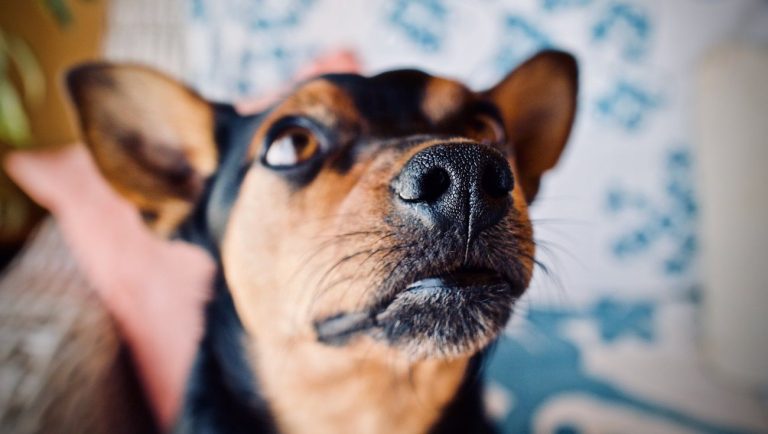s
The common belief that a cold, wet dog nose equals a healthy dog is a myth. While a consistently wet nose is often associated with good health, a dry, warm nose doesn’t automatically signal illness. Let’s explore the science behind a dog’s nose and when a dry nose warrants veterinary attention.
Why is a Dog’s Nose Often Wet?
Understanding why a dog’s nose is frequently moist is crucial before addressing dryness. Two primary reasons explain the wetness:
1. Thermoregulation: Dogs, unlike humans, don’t sweat extensively through their skin due to their fur coats. They rely heavily on panting to dissipate heat through their mouths and evaporation from their nasal passages. Specialized mucous glands within the dog’s nostrils produce a clear, watery fluid that facilitates this cooling process.
2. Enhanced Scent Detection: A dog’s sense of smell is up to a million times more acute than a human’s. The wetness of the nose is theorized to aid in the absorption of airborne scent particles, making even the faintest odors easier to detect. This moisture helps trap and dissolve these scent molecules, improving the dog’s olfactory abilities.
Why Does My Dog’s Nose Sometimes Get Dry?
A dry, warm nose is not always a cause for alarm. Several factors can contribute to a temporarily dry nose in otherwise healthy dogs:
Sleep: A healthy dog’s nose is often warm and dry after a period of sleep. This is perfectly normal.
Age: As dogs age, their noses may naturally become drier and more prone to cracking. This is a consequence of normal aging processes and typically isn’t a concern unless accompanied by other symptoms.
Dehydration: Dehydration can cause a dry nose, alongside other symptoms like lethargy and decreased urination. Ensure your dog has access to fresh, clean water at all times.
Exertion: Physical exertion can lead to a temporary increase in body temperature, resulting in a warm and potentially dry nose.
Environmental Factors: Spending time in direct sunlight or near a heat source can dry out a dog’s nose. Providing shade and avoiding excessive heat exposure can help maintain optimal nasal moisture.
When Should I Worry About My Dog’s Dry Nose?
While a dry nose isn’t inherently a disease indicator, it becomes a cause for concern when accompanied by other symptoms. A dry, warm nose, in and of itself, does not indicate a health problem. However, if the dryness is coupled with any of the following signs, immediate veterinary attention is crucial:
Lethargy or listlessness: A significant decrease in energy levels or a noticeable lack of enthusiasm.
Loss of Appetite: Refusal to eat or a dramatic reduction in food intake.
Nasal Discharge: Any abnormal discharge from the nose, whether clear, colored, or mucus-like.
Redness, Irritation, or Crusting Around the Nose: Inflammation, peeling skin, or sores around the nostrils. These could signal infection or allergies.
Nosebleeds or Sores on the Nose: Any bleeding from the nose or the presence of open sores or wounds requires immediate veterinary attention.
It’s crucial to remember that even if your dog’s nose is wet and cold, but these other symptoms are present, a veterinary visit is still necessary. Don’t solely rely on the nose’s wetness as a health indicator.
Beyond the Nose: Holistic Canine Health Assessment
The condition of your dog’s nose should be considered within the context of their overall health. Regular veterinary check-ups are crucial for early detection of potential problems. Pay attention to your dog’s behavior, appetite, energy levels, and overall demeanor. Any significant changes warrant professional veterinary assessment.
Conclusion
While a cold, wet nose is often associated with a healthy dog, it’s not a foolproof indicator. A dry nose alone shouldn’t cause immediate alarm, but it’s essential to monitor your dog for any accompanying symptoms. If you notice lethargy, appetite loss, nasal discharge, or any skin abnormalities around the nose, consult your veterinarian promptly. Proactive care and regular veterinary check-ups are key to ensuring your canine companion’s well-being. Remember, a holistic approach to your dog’s health is always the best approach.

